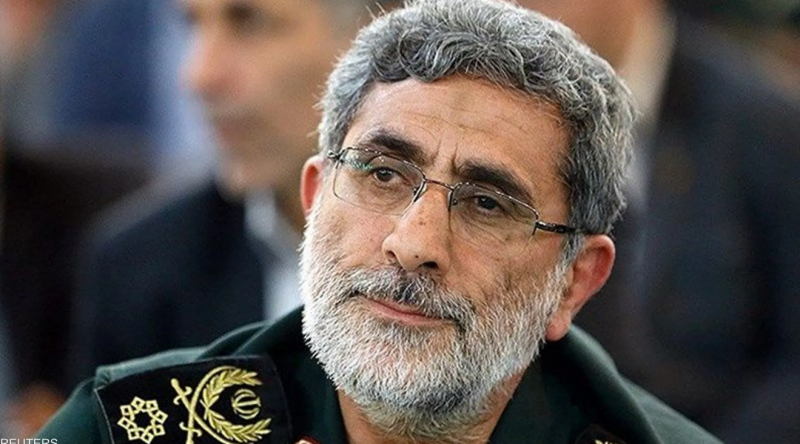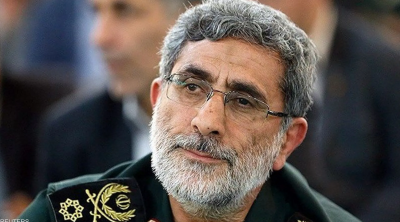The American newspaper "The Wall Street Journal" revealed details about Ismail Qaani, who succeeded Qassem Soleimani in leading the Quds Force of the Iranian Revolutionary Guard after his killing in a U.S. strike in January 2020. The source stated that Soleimani had put the Quds Force at the head of "a network of regional militias that has expanded Iran's military influence across the Arab world over the past two decades." The newspaper described Ismail Qaani as "the enigmatic intermediary managing the 'Axis of Resistance' in Iran," adding that his current mission is "to use this mix of armed groups to expand Iran's footprint in the region without provoking devastating retaliation from the United States."
It clarified: "Since taking over the Quds Force, Qaani has quietly worked to unify the various militias operating under Iranian oversight from Baghdad to the Red Sea, creating what the U.S. government calls the most chaotic situation in the Middle East in decades." It was noted that since Hamas's attack on Israel, Ismail Qaani has spent several weeks asking militias "to ensure that their attacks against Israel and U.S. bases are not severe enough to ultimately trigger a broader regional war."
Qaani was born in the late 1950s and spent most of his professional life overseeing Iranian interests in Afghanistan; he speaks little Arabic and joined the Revolutionary Guard in 1980. The "Wall Street Journal" added: "Not much is known about his biography." It highlighted: "He became a friend of Soleimani in the early 1980s on the southern front during the Iran-Iraq War, later stating that the fighting forged a deep friendship between them." The newspaper explains that since Soleimani's killing, the United States has sought to dismantle "the leadership chain stretching from Tehran to its armed allies operating in Syria, Iraq, Yemen, Lebanon, and the Palestinian territories."




